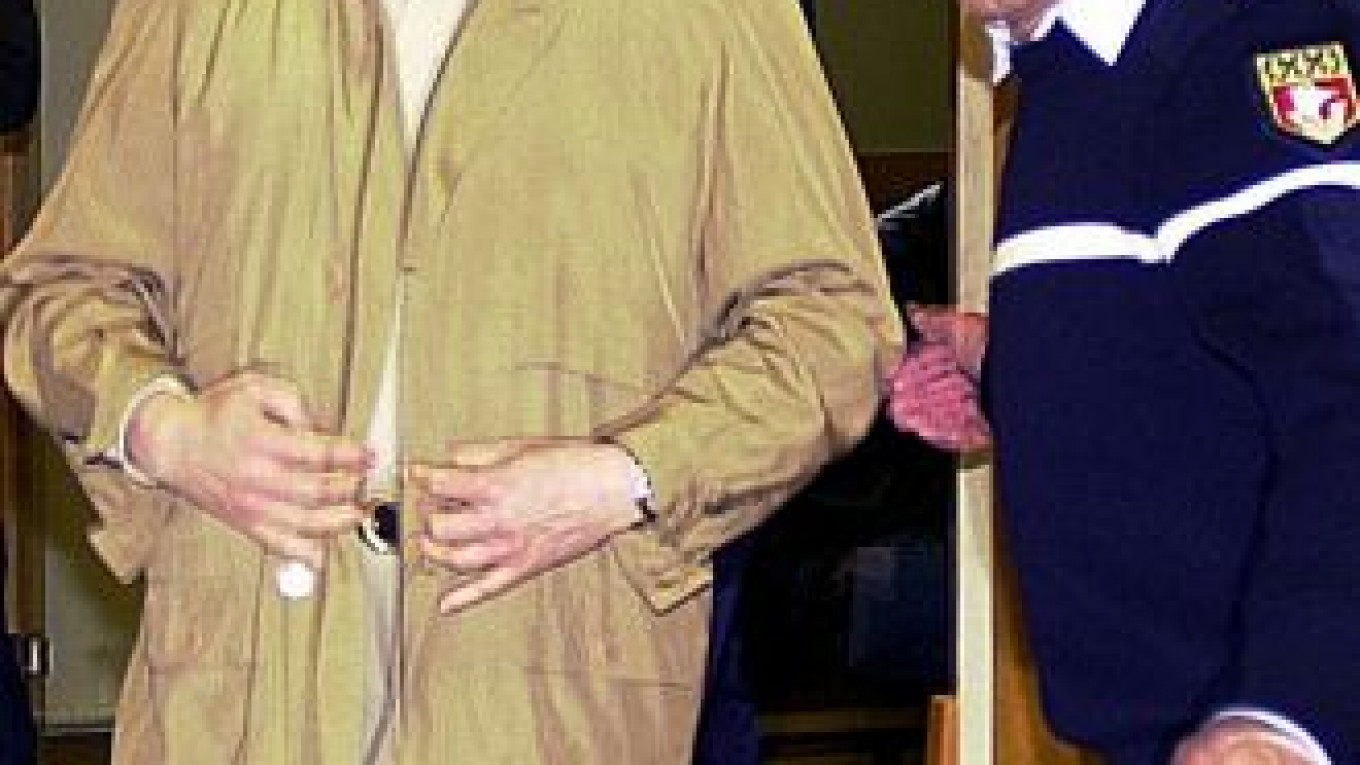He was named after Lenin, learned to love Lermontov in Moscow, drew inspiration from Frederick Forsyth and turned down the KGB in favor of Islamists. Now he's on trial in Paris and looks "defiant and smiling" in the courtroom.
Ilich Ramirez Sanchez, known to the world as Carlos the Jackal, one of the most dangerous international terrorists of the 20th century, is charged with staging four attacks that killed at least 11 people in France in 1980s.
Ramirez Sanchez, 62, is already serving a life sentence after a 1997 conviction for a triple murder, but a new trial has begun for him in Paris. He pleaded not guilty and was "defiant and smiling" at a Monday hearing, news reports said.
"I'm a professional revolutionary," he told the court.
Born into the family of Communist Venezuelan lawyer Jose Altagracia Ramirez Navas, he was christened with Lenin's patronymic. Two brothers were named Vladimir and Lenin.
In the 1960s, Ramirez Sr. sent two sons, Ilich and Lenin, to study at the Patrice Lumumba Moscow University of People's Friendship, the prime Soviet college for skilled or influential Eastern Bloc youth and sympathizers.
But both were expelled in 1970 along with 15 other Venezuelans at the request of the Venezuelan Communist Party, which did not like them going against the party line.
Ilich Ramirez Sanchez threw in his lot with Palestinian radicals instead, training at their camps in Beirut and Jordan, he said in his autobiography, "Revolutionary Islam," written in prison, released in French in 2003 and subsequently translated into Russian.
The KGB tried to recruit him as an agent before his departure from the Soviet Union, but he had already made up his mind to join the Palestinians, he wrote in the book, excerpts from which are available in Russian.
"Had the KGB lured me for cooperation [earlier], I might have never become a member of the Palestinian resistance movement," he said, adding that he kept good ties with the KGB, where many officers were his sympathizers.
In the introduction to the Russian translation of his memoirs, also available , Ramirez Sanchez also mentions the 19-century novelist and poet Mikhail Lermontov as one of his favorite Russian writers, especially for his moody, romantic masterpiece "A Hero of Our Time."
His direct inspiration came from other books, however. The "Jackal" moniker was slapped on him after a reporter in a rare interview spotted on his table Forsyth's "Day of the Jackal." The book, a thriller about a ruthless terrorist working to assassinate French national hero Charles de Gaulle, was made into a movie and remade in 1997 with Bruce Willis playing "the Jackal."
"I came to Moscow a Communist, and I left a Communist," Ramirez Sanchez wrote in his memoirs. "[But] as a true Communist I should step from theory to practice."
In an indication of global shifts in radical ideology, he combined leftist views with Islamism and worked in the following decades with and for groups ranging from Japan's Red Army to Popular Front for Liberation of Palestine and Basque ETA.
Ramirez Sanchez was the key suspect in the 1975 hostage-taking of OPEC oil ministers in Vienna that left three people dead. He was at his most active in the 1970s, but did not give up his trade in the 1980s, eluding all attempts to capture him.
It was not until after the Cold War that his own career ended. In 1994, Sudanese authorities arrested him and extradited him to France, where he was sentenced over his killing of two French spies and their Lebanese informer in 1975 — murders that he denied involvement in, blaming it on the Israeli secret service, Mossad.
His new trial is expected to end around Nov. 28 and could add another life sentence to his jailtime.
A Message from The Moscow Times:
Dear readers,
We are facing unprecedented challenges. Russia's Prosecutor General's Office has designated The Moscow Times as an "undesirable" organization, criminalizing our work and putting our staff at risk of prosecution. This follows our earlier unjust labeling as a "foreign agent."
These actions are direct attempts to silence independent journalism in Russia. The authorities claim our work "discredits the decisions of the Russian leadership." We see things differently: we strive to provide accurate, unbiased reporting on Russia.
We, the journalists of The Moscow Times, refuse to be silenced. But to continue our work, we need your help.
Your support, no matter how small, makes a world of difference. If you can, please support us monthly starting from just $2. It's quick to set up, and every contribution makes a significant impact.
By supporting The Moscow Times, you're defending open, independent journalism in the face of repression. Thank you for standing with us.
Remind me later.






